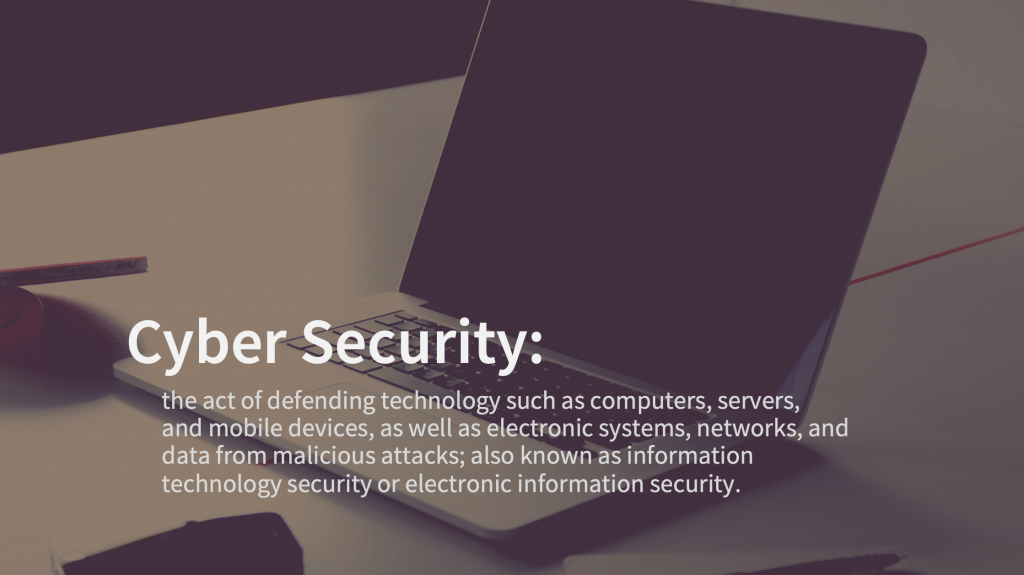What is Cyber Security?
From The Research Team
If someone told you they work in Cyber Security would you know what they mean? This blog aims to help you better understand the term and the global industry decades worth over $66 billion, is decades older than you may know, and is only growing increasingly more complex.
While computers were invented in the 1940’s it wasn’t until 1972 that anyone thought to make put into place security concepts for computers. The 1972 ARPANET (The Advanced Research Projects Agency Network) research project which became known as the “father” of the internet. ARPANET was the first computer network that connected different research laboratories across the United States and had developed protocols for remote computer networking. Prior to the development of ARPANET, cyber security was almost unnecessary because computers could not share information with computers on another network.

Bob Thomas, an ARPANET researcher, created a computer program named Creeper to prove that programs could
move between computers. On each computer it made it on to it left the message “I’m the creeper, catch me if you can”. To stop Creeper, another researcher (Ray Tomlinson) wrote a program Reaper to chase an delete Creeper. Later the programs Reaper and Creeper (a newer self-replicating version) would become widely accepted as the first anti-virus and computer worms.
The work of ARPANET researchers paved the way for cyber security as we know it. The new connections between computers and networks highlighted challenging vulnerabilities and how there was a need for computer security. In 1976, Operating System Structures to Support Security and Reliable Software affirmed “Security has become an important and challenging goal in the design of computer systems.”
There has been almost a half century between the beginning of Cyber Security and today. Over the years technology has developed immensely and security efforts have grown to match. Today the U.S. Cybersecurity & Infrastructure Agency defines Cyber Security as “the art of protecting networks, devices, and data from unauthorized access or criminal use and the practice of ensuring confidentiality, integrity, and availability of information.”
Almost everything we touch on a daily basis is run by computers; thus, everything we do must be done mindfully with security in mind. The following 10 tips are a baseline guide to making sure your daily life is secure from threat actors.
Remembering these tips in your daily life will help to keep you safer from threat actors in both a private and professional stance.
Thret actors are after your personal information but they are even more interested in organizations data. CyNtell was founded to meet the need of critical professional cyber security services to both the private and public sectors. The CyNtell cyber team understands that the needs of each business is unique in the standards the must follow due to their industry specifications, such as HIPAA, SEC, and NIST SP 800-171.
If you or your organization is looking to improve their cyber security posture, schedule a call with a CyNtell Cyber Security Expert today.